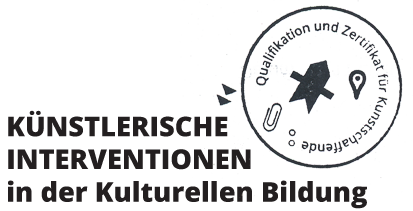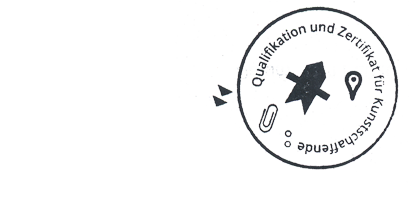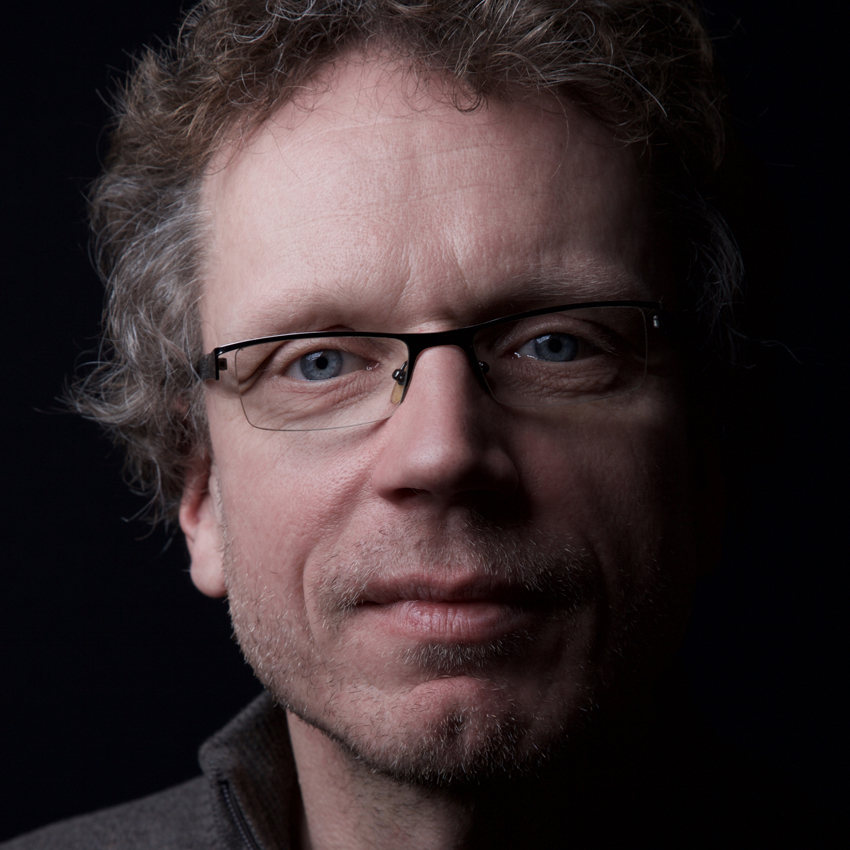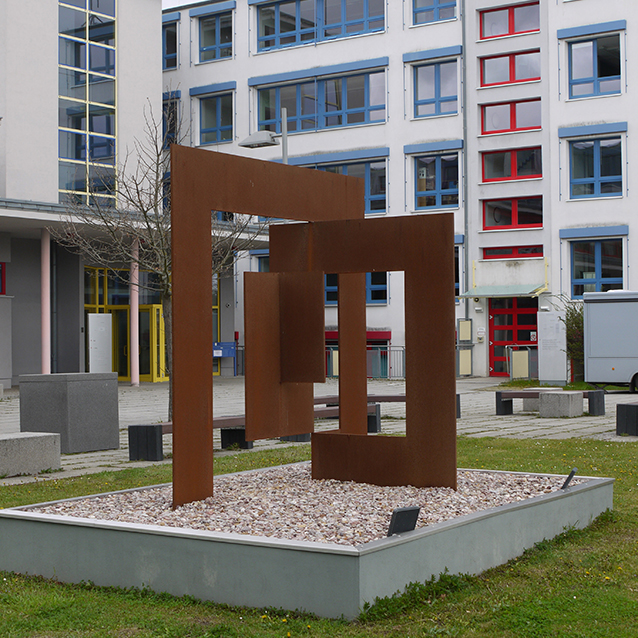



Robert Krainhöfner (*1967), born in Jena, is a trained toolmaker and wood-carver. Until 1999, he studied wood-carving under Professor Christian Höpfner at the Academy of Fine Arts Nuremberg. Following a visiting semester “Freie Kunst” (free art) at the Bauhaus University Weimar, he did postgraduate studies in “Art in Public Spaces” under Professor Johannes Peter Hölzinger, also in Nuremberg. Since 2001, Krainhöfner has been working as a freelance artist, exhibiting his work and participating in numerous competitions. He has already earned several scholarships. In parallel, from 2001 to 2006, he worked as a freelance teacher at the “Freie Waldorfschule Jena”. Since 2006, he has engaged in arts education at various, usually reform pedagogics-oriented schools and adult education institutions, during the last few years also often with a focus on the “Kulturagent*innen-Programm”.
Walter Gropius: Workshop weeks

To mark the centenary of the Bauhaus, in cooperation with Walter Gropius School in Erfurt, the idea arose to develop a sculpture with the pupils doing justice to the artistic claim of the school’s name giver, Walter-Gropius, which could ultimately also be realised in the school building. For this purpose, three workshop weeks were held with eight to twelve youths each. Initially, in a jury session, three models were shortlisted from the model works which were later on put into more precise terms. In a further session of the jury, one work of art was chosen which was then implemented by a metal processing company.
What have you taken home from this project for your artistic activities?
The challenge in this project was to rouse enthusiasm among my workshop participants and sensitise them to the dimension and seriousness of the project. Explaining the individual steps of the process in the right words to a counterpart requires an additional review of what is purely an intuition. Many subconscious actions in one’s own creative work thus enter one’s consciousness since one has to explain them again and again to the participants. In this project, I have learnt a lot about the need for communication with those involved who are responsible.
Which topic turns up again and again in your artistic activities?
My work always starts with simple geometrical forms, such as the circle, the square and the bar, which obviously undergo a process of modification. These elementary forms are folded or cut apart and newly arranged according to predefined rules. Inquisitiveness seeking to show the living and non-visible essence of geometry is at the forefront of my examinations. Folded spaces are developed which can be traced back to their original setting with imaginative attention. One is challenged to take a close look and understand the playful links between surfaces and spaces. I look at them as “Visual Sounds”.
What do you seek to achieve with your arts education activities?
In my workshops and projects, I seek to have teaching art put more emphasis on practice, or to create an atelier atmosphere, something that can seldom be achieved in conventional school lessons. Working together and vying to find good solutions results in questions of immediate importance which can directly be discussed on the basis of the given situation. Taking these questions seriously builds courage and inspires the participants to think in larger dimensions. In this manner, outsiders in particular can learn to focus on certain topics. The general aim is to rouse a passion for and confidence in the creative process.
What, in your view, is the essence of an artistic intervention in arts education?
With my artistic interventions in arts education, I seek to break the mould of what has been achievable so far and sharpen anew the view of what the status of art is. First of all of course among school pupils, but also among teachers and parents. It is experiences beyond everyday life at school which get pupils to venture out of their comfort zone and thus reveal something which lies deeper. Thus I would like to leave lasting experiences for posterity which can only seldom be gained in the normal operations of our education system.